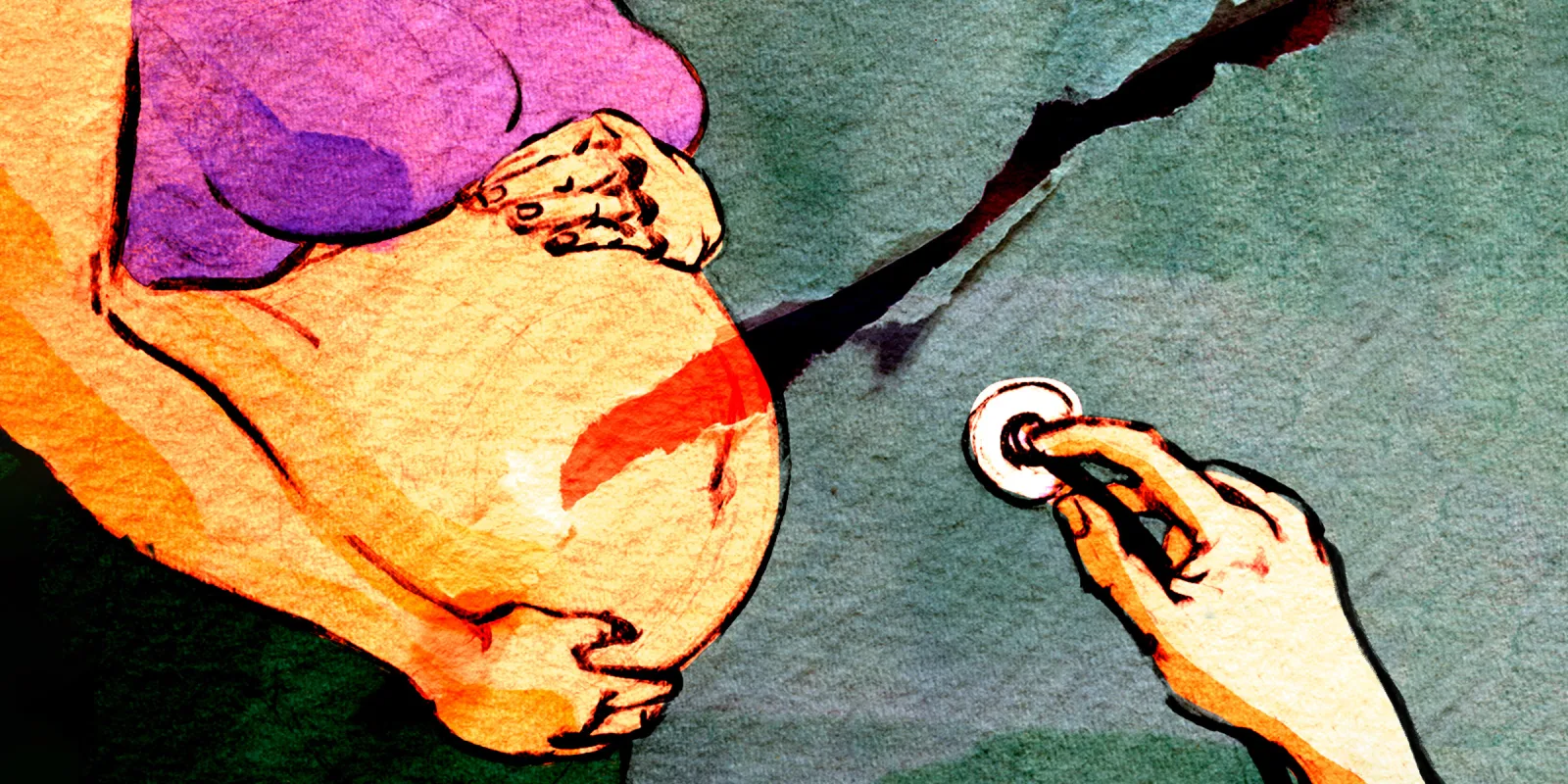I was lying on the operating table with half of my body dead below the waist. I had a sinking feeling that something was wrong, but I could not put my finger on it. This event was the first cesarean section I had ever had, preceded by several deliveries with no intervention. I thought to myself, "Maybe this is how it is supposed to feel." During the surgery, I could no longer stand the relentless heavy pressure and knew that I was sliding off as my upper body swung sideways on the operating table. After I was pushed back on, I turned to the anesthesiologist and told him that the pressure was unbearable. The anesthesiologist barely looked at me and went back to reading the machines. I breathed a sigh of relief when it was over, but it was the beginning of another ordeal.
Soon after surgery, I held my twin babies and marveled at how perfect and beautiful they were. I was wheeled to the postpartum unit and settled in, as I regained body sensations fully within several hours. “Get up and walk around the unit, ma'am," the nurses nudged me the next day. I barely limped around the unit, writhing in relentless pain and cramps. "Maybe this is how it's supposed to be after a C-section,” I thought. Twenty-four hours turned into 48 hours and then 72 hours, and I could barely stand up straight. I hobbled around the unit bent over, being reassured the pain and discomfort would lessen with time. I went home to continued pain and poor breastfeeding. When my fever started the next day, I went to the ER — barely able to organize my thoughts and so worried about leaving my children — and was admitted to the postpartum unit.
Then, my greatest ordeal began.
The surgical wound began to leak fluid. "It's a seroma, it's nothing to worry about," I was told. I kept telling the OB attending that something was wrong and I should be checked for an infection. "Oh, it’s just a seroma, and it will go away." When it did not stop, antibiotics were changed and no further intervention was offered. The fever just kept raging. Nothing I said could change the physician's care plan. During morning rounds each day, no one listened when I said that I needed to get much more testing and other specialty care involved. My concerns were brushed aside.
My status as a physician was known to this team — I was employed in the same hospital — but my voice was diminished and disregarded. I felt powerless, frightened, and aghast. Advocating for myself went nowhere. My confidence plummeted, and I pondered what I may have done wrong or said wrong to warrant such a response.
Finally, desperate, I placed a call to my brother-in-law who is also a physician. He promptly contacted the OB attending and relayed that hospital administration would be contacted if the correct treatment strategies were not ordered; this communication resulted in almost immediate changes. I was suddenly wheeled down to the CT suite and a surgeon appeared at my bedside. This surgeon took time to listen to me, apologized for all I had gone through, and diagnosed me with abscess formation before the CT results were available. The surgeon then told me a personal story — he had been on “the other side” as I was now. I made two trips to the OR for drainage of an abscess, spent an extended time in the hospital with a wound vacuum, took countless antibiotics, and encountered an ID doctor who made me feel medically illiterate when I asked questions about my care and threatened to sign off my case.
But I finally made it home. Slowly, I began to understand that I was not alone in my experience. Minority women often report that they are not heard or believed by their physicians and are not viewed as partners in their own health care.
A 2017 study noted that health care inequities exist for Black women across socioeconomic statuses. The researcher argues that Black women, fully aware of the stereotypes and racism working against them in the health care system, often rely on communication strategies and other skills to navigate doctor-patient interactions and mitigate the effects.
Though I am a physician, I was not immune to nor alone in this phenomenon. I sadly recount the high-profile case of Serena Williams (blood clot and pregnancy). “Doctors aren’t listening to us, just to be quite frank,” she told the BBC, noting that Black women are three times more likely than white women to die during pregnancy or childbirth. Dr. Susan Moore passed away after a physician dismissed her pain and concerns about her treatment as she lay in an Indiana hospital.
This was not a case of me expecting special treatment because I am in the medical field, but it was about being heard, respected, and valued as a person. I have learned to be stronger, to advocate better, to educate and inform myself, and to stand my ground.
The words of that surgeon in the CT suite still ring in my ears: “Grace, now that you have been on the other side, as I have also been, and had your experience, this should affect the way you handle patient care.” I strive to listen better, dig deeper into each patient's story shared with me, empathize more, and coach my patients with chronic medical conditions to advocate for their health and well-being.
Dr. Grace Onimoe is a pediatric hematologist/oncologist in Cleveland, OH, and is affiliated with MetroHealth Medical Center. She received her medical degree from Nnamdi Azikiwe University College of Health Science and has been in practice 19 years. She is experienced in general pediatric hematology and oncology and aya. She has more than 10 publications and over 50 citings.
Illustration by Jennifer Bogartz







